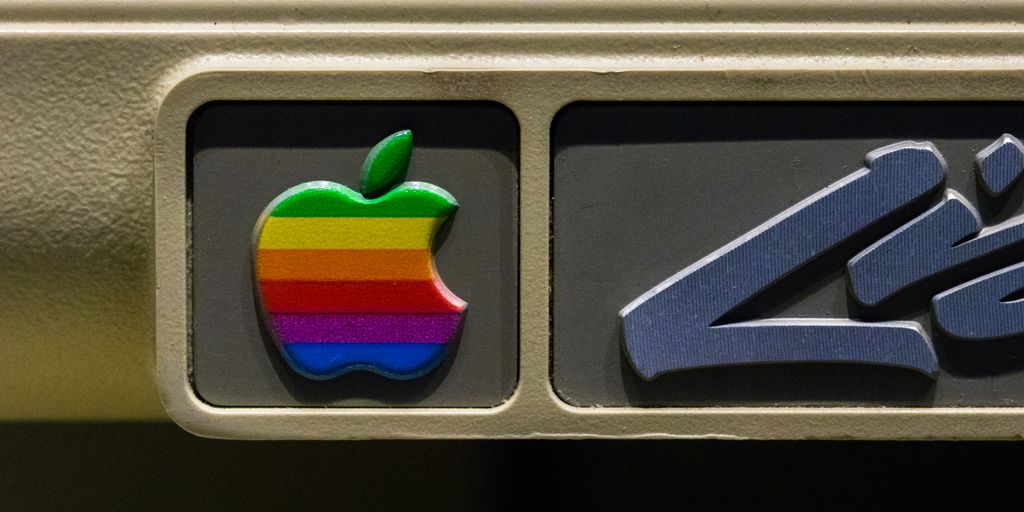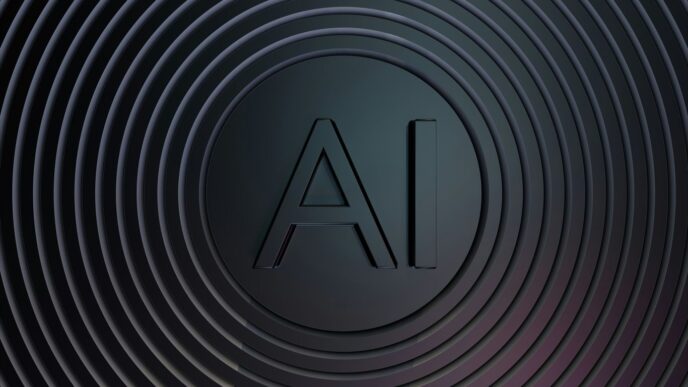Lately, you might have heard some chatter about big companies getting hit with data breaches, and it’s natural to wonder, “Did Apple get hacked?” It’s a fair question, especially with how much of our lives are tied to our devices and online accounts. We’re going to break down what’s really happening with these recent security incidents, clear up some misunderstandings, and talk about what this all means for you and your Apple stuff. We’ll look at the big picture of data security and what Apple does to keep your information safe.
Key Takeaways
- Apple itself hasn’t had a big, central hack, but user login info might show up in other data leaks from different places.
- The number of data breaches is going up a lot, with cloud data being a major target for bad actors.
- Apple uses strong security features like Advanced Data Protection for iCloud and Lockdown Mode to protect user information.
- Even with strong security, third-party weaknesses can still put your data at risk if other companies you use get breached.
- Using strong passwords and being careful about phishing attempts is super important for keeping your Apple accounts secure.
Understanding The Scope Of Data Breaches
Dramatic Rise In Compromised Records
Okay, so data breaches are a big deal, and they’re getting bigger. It feels like every other week there’s news about some company getting hit, and millions of records are exposed. The sheer volume of compromised data has skyrocketed in recent years. I remember when a million records felt like a huge breach, but now, that’s almost small potatoes. The increasing digitalization of our lives is definitely fueling this trend. We’re putting more and more of our personal and professional information online, which gives hackers more opportunities to find vulnerabilities. It’s not just about numbers, though. It’s about the real-world impact on people’s lives.
Cloud Data As A Primary Target
Where’s everyone storing their data these days? The cloud, of course! And guess what? That’s where the hackers are going too. A recent study showed that a huge percentage of breaches involved data stored in the cloud. It makes sense, right? If you’re a hacker, why go after one computer when you can potentially access a whole server farm? Plus, a lot of companies are still figuring out the best ways to secure their cloud infrastructure, which leaves them vulnerable. Apple is trying to keep user data in iCloud protected, but the cloud is still a big target. It’s like the old saying: why rob a bank when you can rob the mint?
Evolving Hacker Tactics
Hackers aren’t just using the same old tricks anymore. They’re constantly coming up with new and creative ways to break into systems and steal data. They’re using more sophisticated malware, social engineering, and even exploiting vulnerabilities in the supply chain. It’s like a constant arms race, with security professionals trying to stay one step ahead. And honestly, it’s tough. They are even using malicious software to steal sensitive information. One thing that’s really concerning is the rise of ransomware attacks. Hackers are encrypting data and then demanding a ransom to unlock it. It’s a really effective tactic, and it’s causing a lot of damage. Here are some common tactics:
- Phishing campaigns are getting more sophisticated.
- Exploiting zero-day vulnerabilities is becoming more common.
- Supply chain attacks are on the rise.
Did Apple Get Hacked Directly?
It’s a question on many people’s minds, especially with data breaches seemingly everywhere. So, did Apple get hacked directly? Let’s break it down.
No Centralized Apple Breach
Here’s the thing: there hasn’t been a single, massive breach where hackers stormed Apple’s main servers and grabbed everything. That kind of "all-in-one" hack hasn’t happened, at least not that we know of. Instead, the situation is a bit more nuanced. It’s more about how our data gets exposed in today’s digital world.
Credentials Included In Broader Leaks
What has happened is that Apple account credentials sometimes pop up in larger data dumps. Think about it: we use our email addresses and passwords for tons of stuff. If one of those other services gets hacked, and you happen to use the same Apple ID password there (which, by the way, you shouldn’t!), then your Apple account could be at risk. It’s like a chain reaction. These broader leaks are a big problem, and Bitcoin and Apple are both at risk.
Distinguishing Direct Attacks From Data Exposure
It’s important to tell the difference between a direct attack on Apple and general data exposure. A direct attack would mean hackers specifically targeted Apple’s systems. Data exposure, on the other hand, means your information was compromised somewhere else, and that compromised info could then be used to try and access your Apple account. It’s a subtle but important difference. Apple has advanced data protection to help with this. Think of it like this: if someone steals your house key from your gym locker, they didn’t directly attack your house, but they can still get in. Staying safe online is a constant game of cat and mouse.
Apple’s Proactive Security Measures

Apple has been making moves to stay ahead of the bad guys, and it’s not just talk. They’ve rolled out some serious security features aimed at protecting user data. It’s a constant game of cat and mouse, but Apple seems determined to keep their users safe. It’s good to see them taking this seriously, especially with all the breaches happening lately.
Advanced Data Protection For iCloud
Apple’s Advanced Data Protection for iCloud is a big deal. Basically, it gives you the option to encrypt almost all of your iCloud data end-to-end. This means that even if there’s a data breach, most of your stuff is still safe because it’s encrypted. iCloud already protects 14 categories of data with end-to-end encryption by default, like passwords and health data. Enabling Advanced Data Protection bumps that up to 23 categories, including iCloud Backups, Notes, and Photos. It’s like putting your data in a super secure vault.
Lockdown Mode For Targeted Threats
Lockdown Mode is another interesting feature. It’s designed for people who might be at risk of targeted attacks, like from mercenary spyware. When you turn on Lockdown Mode, it severely restricts certain functions on your device. For example, it blocks most message attachments, disables some web browsing technologies, and limits incoming FaceTime calls from unknown numbers. It’s a pretty extreme measure, but it can be a lifesaver if you’re a target. It’s like putting up the digital equivalent of bulletproof glass.
Commitment To User Data Security
Apple has made it clear that they’re committed to protecting user data. Craig Federighi, Apple’s senior vice president of Software Engineering, said that they’re always looking for ways to fight back against those trying to steal consumer data. They’re constantly adding more powerful protections to their devices and services. It’s not just about features, though. It’s also about how they design their systems and how they handle data. They’re trying to build security into everything they do. It’s a good sign that they’re taking this seriously, and hopefully, it will make a difference in the long run.
The Threat Of Third-Party Vulnerabilities
It’s easy to think about Apple’s security as a fortress, but even the strongest walls can have weak spots. Often, those weaknesses aren’t in Apple’s direct control, but rather in the third-party services and vendors they rely on. This is where things get tricky. Even if Apple has top-notch security, a vulnerability in a partner’s system can be a backdoor into your data.
Supply Chain Attack Risks
Think of the digital supply chain like a physical one. If a hacker compromises a supplier, they can potentially inject malicious code or steal sensitive information that eventually makes its way into Apple’s ecosystem. These supply chain attacks are becoming increasingly common, and they’re difficult to defend against because they target the weakest link in the chain, not necessarily the primary target.
Weak Links In The Digital Ecosystem
It’s not just about big suppliers either. Even smaller companies that handle data related to Apple services can be a point of entry for attackers. These "weak links" might not have the same level of security as Apple, making them easier targets. This is why it’s important to be aware of who has access to your data and what security measures they have in place.
Protecting Data Stored By Other Organizations
So, what can you do? It’s tough because you don’t have direct control over the security of these third parties. However, you can take steps to minimize your risk:
- Be mindful of the apps and services you use and the permissions you grant them.
- Use strong, unique passwords for each account.
- Enable two-factor authentication wherever possible.
- Regularly review your account activity for any suspicious behavior.
- Consider using a password manager to help you keep track of your passwords.
While you can’t eliminate the risk entirely, taking these precautions can significantly reduce your exposure to third-party vulnerabilities. It’s all about being proactive and staying informed about the potential threats.
The Role Of End-To-End Encryption

Essential For Cloud Data Protection
Okay, so end-to-end encryption. What’s the big deal? Well, in a world where data breaches are becoming as common as, like, rainy days, it’s a pretty huge deal. It’s basically the digital equivalent of sending a letter in a locked box that only the recipient has the key to. No one else – not even the company providing the service – can read it. This is super important when you’re talking about cloud storage, because, let’s face it, we’re all dumping tons of personal stuff up there. Think about it: photos, documents, contacts… all prime targets for hackers.
Safeguarding Sensitive Information
End-to-end encryption is a game-changer when it comes to keeping your sensitive info safe. It’s not just about hiding data; it’s about making it completely useless to anyone who manages to intercept it. Imagine someone getting their hands on your iCloud backup. Without end-to-end encryption, they could potentially see everything. But with it? It’s just a bunch of scrambled code. Apple’s Advanced Data Protection for iCloud is a great example of this in action. It’s like having a personal bodyguard for your data, ensuring that even if the cloud provider gets compromised, your stuff remains private. Here’s a quick rundown of why it matters:
- Protects against unauthorized access.
- Reduces the risk of data leaks.
- Gives you control over your data.
Minimizing Impact Of Breaches
Let’s be real: data breaches are probably going to keep happening. The goal isn’t to prevent them entirely (though, of course, companies should try!), but to minimize the damage when they do occur. End-to-end encryption does exactly that. Even if a hacker manages to break into a system, the encrypted data is basically worthless to them. It’s like stealing a safe full of Monopoly money – frustrating, but ultimately harmless. This is why it’s so important to use services that offer end-to-end encryption, especially for anything sensitive. It’s an extra layer of protection that can make all the difference. The cybersecurity landscape is constantly evolving, and this is a key tool for staying ahead of the threats.
Impact On Apple Accounts And Users
Potential Exposure Of Login Details
Okay, so what happens if your Apple account info does end up in one of these breaches? Well, the most immediate worry is that your login details could be exposed. This means someone might be able to access your Apple ID, which is basically the key to your entire Apple ecosystem. Think about it: email, photos, contacts, payment info – it’s all tied to that one account. It’s not a fun situation, but knowing the risks helps you prepare.
Importance Of Strong Passwords
I can’t stress this enough: use strong, unique passwords for everything, especially your Apple ID. I know, it’s a pain to remember them all, but password managers are a lifesaver. Don’t reuse passwords across different sites, because if one site gets breached, hackers will try those same credentials on other platforms, including your Apple account. Think of it like this: a strong password is the first line of defense. Make it count.
Staying Vigilant Against Phishing
Even with the best security measures, you still need to be on guard against phishing attempts. These scams are designed to trick you into giving up your login details. Be wary of suspicious emails or messages that ask for your Apple ID or password. Apple will never ask for your password in an email. If something feels off, it probably is. Always double-check the sender’s address and look for any red flags like typos or grammatical errors. It’s better to be safe than sorry. You can also manage your Apple account to check for any suspicious activity.
Apple’s Ongoing Research And Reports
Independent Study Findings
Apple isn’t just sitting back; they’re actively trying to understand the threat landscape. They commission independent studies to get a clearer picture of data breach trends and the effectiveness of different security measures. These studies often reveal surprising insights into how hackers operate and where vulnerabilities lie. For example, one recent study highlighted the increasing sophistication of phishing attacks, noting a shift towards more personalized and targeted campaigns. It’s not just about broad sweeps anymore; they’re coming for you specifically.
Analyzing Data Breach Trends
Apple dedicates resources to analyzing data breach trends, both within their own ecosystem and across the broader tech industry. This involves tracking the types of attacks that are most common, the industries that are most targeted, and the specific vulnerabilities that are being exploited. They look at the number of records compromised and the methods used by cybercriminals. This analysis helps them to proactively identify and address potential weaknesses in their own systems and to develop new security features to protect users.
Public Awareness And Education
It’s not enough for Apple to just build secure products; they also need to educate users about how to stay safe online. They invest in public awareness campaigns to teach people about the importance of strong passwords, the dangers of phishing scams, and the steps they can take to protect their personal information. This includes:
- Creating easy-to-understand guides and tutorials.
- Partnering with organizations to promote cybersecurity awareness.
- Releasing regular reports on the latest threats to user data and how to avoid them.
They also work to make sure that their products are designed in a way that makes it easy for users to make smart security choices. It’s all about empowering people to take control of their own security.
Conclusion
So, what’s the takeaway from all this talk about Apple and hacks? Well, it’s pretty clear that even big companies like Apple, with all their security stuff, aren’t totally safe from online bad guys. Data breaches are just a part of life now, and they’re only getting worse. It’s not about whether a company will get hit, but when. The good news is, Apple is always working on new ways to protect our info, like those fancy data protection features. But honestly, a lot of the responsibility falls on us too. We need to be smart about our passwords, watch out for weird emails, and just generally be careful online. Staying informed is a big part of staying safe, so hopefully, this article helped you out a bit. Keep your eyes open, and let’s all try to make it harder for these hackers, okay?
Frequently Asked Questions
Has Apple been directly hacked?
No, Apple itself hasn’t had a big hack where all its user data was stolen at once. What usually happens is that login details for Apple accounts show up in leaks from other companies. This means your Apple password might be exposed if you used the same password on a different website that got hacked.
Why are data breaches becoming more common?
Data breaches are happening more often because more of our lives are online, and hackers are always finding new ways to break into systems. They’re getting better at what they do, and even companies with strong security can be at risk.
What is Apple doing to protect my data?
Apple uses strong security features like Advanced Data Protection for iCloud, which keeps most of your cloud data safe even if there’s a breach. They also have Lockdown Mode for people who might be targeted by very serious threats, like government-backed spyware.
What are third-party vulnerabilities?
Sometimes, hackers attack smaller companies that work with bigger ones. If a smaller company has weaker security, hackers can get in there and then use that access to try and get into the bigger company’s systems. This is why everyone in the digital world needs good security.
Why is end-to-end encryption important?
End-to-end encryption is a way of scrambling your data so that only you and the person you’re sharing it with can read it. It’s super important because even if hackers get hold of your encrypted data, they can’t understand it without the right key, which helps keep your information private.
What happens if my Apple account details are leaked?
If your login details are exposed, hackers might try to get into your Apple account. It’s really important to use strong, unique passwords for all your accounts and to be careful about phishing, which is when scammers try to trick you into giving them your information.












